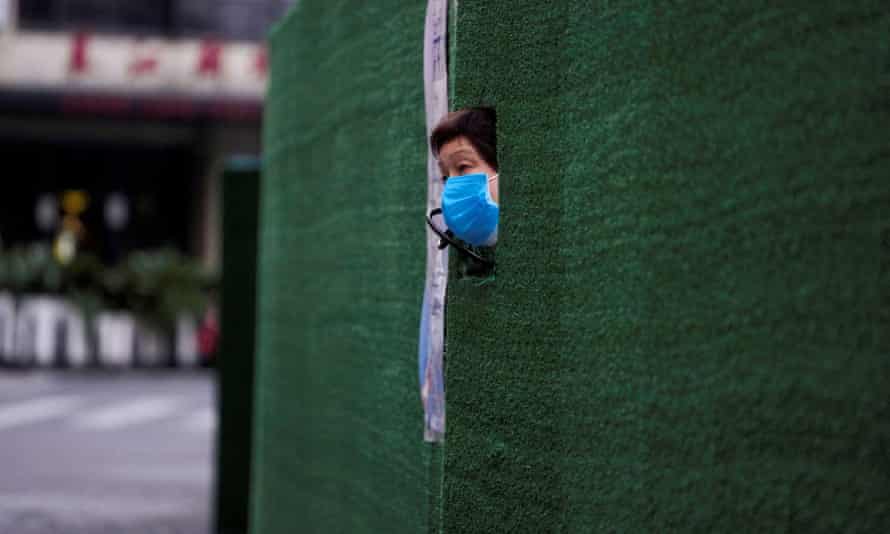
Tensions between Shanghai residents and China’s Covid enforcers are on the rise again, amid a new push to end infections outside quarantine zones to meet President Xi Jinping’s demand for achieving “dynamic zero-Covid”.
Videos shared on China’s social media platforms showed suspected Covid-positive patients forcibly quarantined in central facilities. In some neighbourhoods a single positive case could lead to residents in the entire apartment building be sent for quarantine.
Censors have been taking down many of these videos, but determined residents have continued to post them. Past speeches by top officials and legal scholars have resurfaced in which they speak of the importance of the rule of law. These speeches have been shared and reposted on social media to express disapproval of government policy.
Last week, Xi reiterated that his government had no intention of turning away from the controversial zero-Covid commitment, in a major speech to the country’s senior cadres. He urged officials to “unswervingly adhere to the general policy of dynamic zero-Covid” and warned against any criticism or doubting of the policy.
‘There is no why’
Over the weekend, residents in at least four of Shanghai’s 16 districts reported receiving notices that told them they would no longer be able to receive food deliveries or leave their homes, prompting numerous complaints on social media.
“The virus itself is no longer scary, but the way the government enforced the policy has become the most frightening thing,” said one Shanghai resident, who wished to remain anonymous. “We had thought the lockdown could be eased this month, but now there’s no end in sight again.”
In the past few days, a number of videos shared on social media showed that health officials – also called Dàbái, or “Big Whites” due to their white hazmat suits – entered residents’ homes and sprayed disinfectants everywhere. This practice outraged many residents, who questioned the legality. Others asked whether such a measure had any scientific basis.

In one viral video, hazmat-suited enforcement officers ordered residents to be quarantined after a neighbour tested positive. “It’s not that you can do whatever you want – unless you’re in America. This is China,” one of the officers is heard saying. “Stop asking me why, there is no why. We have to adhere to national guidelines.” The Guardian does not know the identities of the residents and whether they were eventually taken away.
Not all Shanghai residents were compliant. In a separate video, a local resident addressed government health workers to abide by China’s law. The middle-aged man, clad in a red protective suit with a face mask and a face shield, pointed out that there was always a limit to the power government officials are entitled to, and citizens’ rights should not be abused.
“Let me tell you,” the man said, “you can only use your power with the authorisation of law … You have to tell me which items in our country’s law allowed you to carry out your public power today? … Therefore, you cannot enforce hard isolation [upon us].”
It is not the first time that the government’s enforcement of zero-Covid has led to tensions in Shanghai, home to 25 million people and a key financial hub in Asia. In April, residents in Pudong – the eastern part of the city – scuffled with hazmat-suited police who were forcing them to surrender their homes to become coronavirus quarantine facilities.
‘Legal disaster’
Worried about Covid-prevention excesses, legal scholars have voiced their concerns. On Sunday, a long appeal letter urging the government to abide by China’s constitution was widely shared on social media. Censors took down the article multiple times but many determined residents continued to post it.
The lead author of the letter, Prof Tong Zhiwei at Shanghai’s East China University of Political Science and Law, said the restrictions and the way the authorities enforced them could lead to “some kind of legal disaster”.
“Pandemic prevention needs to be balanced with ensuring people’s rights and freedoms,” Tong wrote. “Local governments and officials need to stick to the constitution and laws, and cannot destroy the rule of law for convenience.”
Guobin Yang, a sociologist at the University of Pennsylvania and the author of the book The Wuhan Lockdown, said: “Like what we’ve seen in Wuhan in 2020 when the virus first emerged, citizens are protesting against the government’s blunt enforcement of lockdowns. Shanghai has taken this dynamic to a new level, but we still don’t know how the government will respond in the end.”
Shanghai is in its sixth week of lockdown. Case numbers have been decreasing, according to local health officials. On Monday, Shanghai reported 322 locally transmitted Covid cases, 3,625 local asymptomatic infections, and 11 deaths for the previous 24 hours. It was a continued drop in new cases for the 10th straight day.
It is not just Shanghai that has been under some form of restrictions. In Beijing, where daily case numbers are far below Shanghai’s at this point in its outbreak, the government has asked residents to work from home. Dozens of bus routes and almost 15% of the Chinese capital’s sprawling subway system have been suspended.


